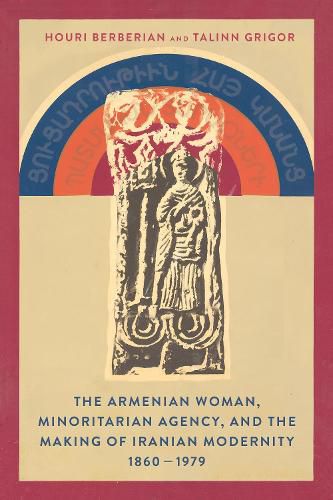Readings Newsletter
Become a Readings Member to make your shopping experience even easier.
Sign in or sign up for free!
You’re not far away from qualifying for FREE standard shipping within Australia
You’ve qualified for FREE standard shipping within Australia
The cart is loading…






With this book, Houri Berberian and Talinn Grigor offer the first history of Armenian women in modern Iran. Foregrounding the work of Armenian women's organizations, the authors trace minoritarian politics and the shifting relationships among doubly minoritized Armenian female subjects, Iran's central nodes of power, and the Irano-Armenian patriarchal institutions of church and political parties.
Engaging broader considerations around modernization, nationalism, and feminism, this book makes a conceptually rich contribution to how we think about the history of women and minoritized peoples. Berberian and Grigor read archival, textual, visual, and oral history sources together and against one another to challenge conventional notions of "the archive" and transform silences and absences into audible and visual presences. Understanding minoritarian politics as formulated by women through their various forms of public and intellectual activisms, this book provides a groundbreaking intervention in Iran's history of modernization, Armenian diasporic history, and Iranian and Armenian feminist historiography.
$9.00 standard shipping within Australia
FREE standard shipping within Australia for orders over $100.00
Express & International shipping calculated at checkout
With this book, Houri Berberian and Talinn Grigor offer the first history of Armenian women in modern Iran. Foregrounding the work of Armenian women's organizations, the authors trace minoritarian politics and the shifting relationships among doubly minoritized Armenian female subjects, Iran's central nodes of power, and the Irano-Armenian patriarchal institutions of church and political parties.
Engaging broader considerations around modernization, nationalism, and feminism, this book makes a conceptually rich contribution to how we think about the history of women and minoritized peoples. Berberian and Grigor read archival, textual, visual, and oral history sources together and against one another to challenge conventional notions of "the archive" and transform silences and absences into audible and visual presences. Understanding minoritarian politics as formulated by women through their various forms of public and intellectual activisms, this book provides a groundbreaking intervention in Iran's history of modernization, Armenian diasporic history, and Iranian and Armenian feminist historiography.